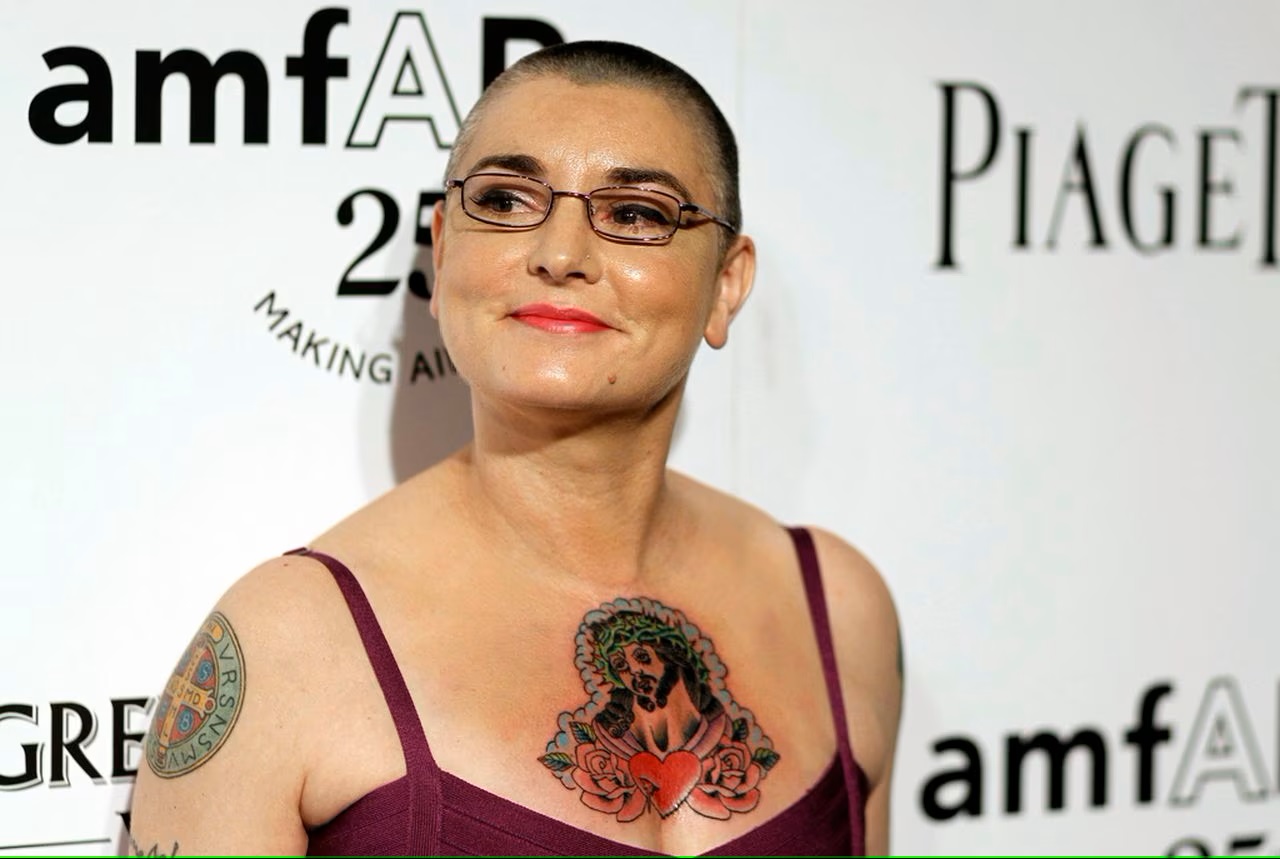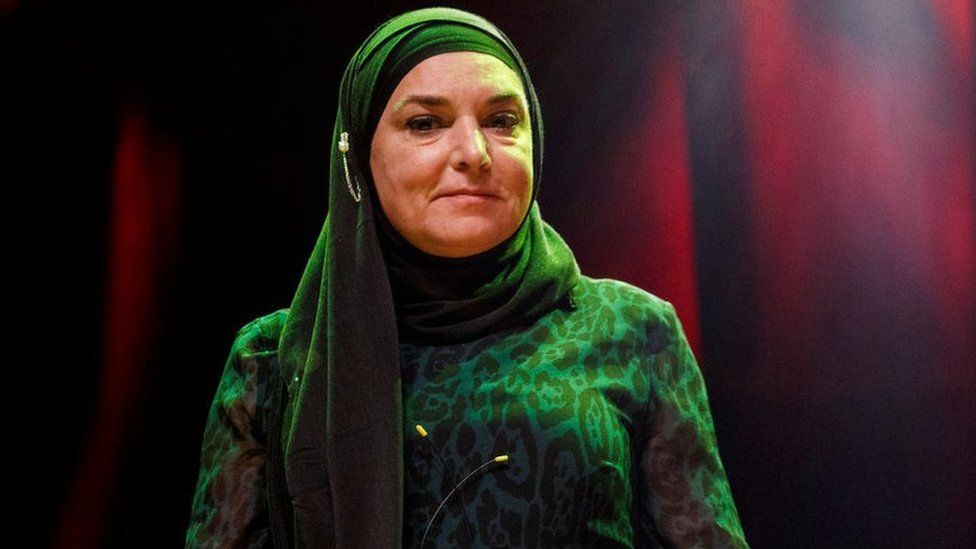News
Singer and Songwriter Sinead O’Connor Dead at 56

Sinead O’Connor, the Irish singer noted for her passionate and beautiful voice, political views, and personal turmoil in her later years, has died. She was 56 years old at the time. “Her family and friends are devastated,” her relatives said, announcing the news “with great sadness.” The reason of death is unknown.
She was best known for her 1990 number one hit, Nothing Compares 2 U, which catapulted her to worldwide popularity.
Between 1987 and 2014, Sinead O’Connor, who was vocal in her social and political beliefs, released ten studio albums.
Rolling Stone magazine named her artist of the year in 1991, and she received the Brit Award for international female solo artist.
The following year, on the US TV show Saturday Night Live, where she was an invited performer, she ripped up a photo of Pope John Paul II, which became one of her most memorable moments.
Sinead O’Connor stared towards the camera after her acapella rendition of Bob Marley’s War and declared, “fight the real enemy,” a protest against child sexual abuse in the Catholic Church.
Her acts led to a lifetime ban from NBC and protests in the United States, which saw copies of her recordings destroyed in New York’s Times Square.
“I’m not sorry for what I did. “It was brilliant,” she stated in a New York Times interview in 2021.
I’m Not Bossy, I’m The Boss, Sinead O’Connor’s most recent studio album, came out in 2014.
Caitlin Moran, a journalist, described O’Connor as “decades ahead of her time.”
Sinead O’Connor becomes Shuhada’ Sadaqat
Following her conversion to Islam in 2018, the Dublin singer changed her name to Shuhada’ Sadaqat but continued to perform under her given name. In 2021, she will publish her memoir, Rememberings.
Shane, her 17-year-old son, was discovered dead in January 2022 after being reported missing two days earlier.
Following his death, she wrote on social media that he had “decided to end his earthly struggle” and asked that “no one follow his example.”
Due to her “continuing grief” after her son’s death, the singer later postponed all live appearances for the remainder of 2022.
In one of her final tweets, Sinead O’Connor referred to Shane as “the love of my life, the lamp of my soul, we were one soul in two halves.”
After converting to Islam in 2018, the Dublin singer took the name Shuhada’ Sadaqat.
One of the last persons to communicate with O’Connor before her death, Belfast filmmaker Kathryn Ferguson, was “devastated” by the news.
Nothing Compares Documentary
Ferguson was working on a documentary film on Sinead O’Connor called Nothing Compares, which will be released this Saturday.
“Our film was really a love letter to Sinead for me.” “It took a long time,” she told BBC Radio 4’s Front Row. “And inspired by the influence she had on me as a young girl growing up in Ireland.”
“She is one of the most daring, incredible musicians we’ve ever had.” And we were quite fortunate to have had her.”
After her death was confirmed on Wednesday evening, social media was flooded with tributes to the singer.
Alison Moyet, a singer, described Sinead O’Connor as having a “amazing presence” and a voice that “cracked stone with force by increment.”
“I was as beautiful as any girl in the room and never traded on that card.” That was something I admired about her. Iconoclast.”
Dara O’Briain, an Irish comedian, stated of her death, “That’s just very sad news.” What a pity. I hope she recognised how much affection she had.”
“Sinead was the true embodiment of a punk spirit,” stated Tim Burgess of the Charlatans. She refused to compromise, which made her life more difficult. “I hope she has found peace.”
Marian Keyes, an Irish author, termed Sinead O’Connor’s death as “heartbreaking.”
O’Connor had a difficult childhood. Her parents split when she was eight years old, and her mother died in a vehicle accident in 1985, accusing her of abuse.
She was imprisoned for shoplifting as a teenager and sent to the Magdalene Asylum, which she characterised as a “prison” where “girls cried every day.”
All of her horrific experiences, both past and future, spilled into her songs. I Am Stretched On Your Grave is a hauntingly beautiful song about love and loss, while Three Babies, from her second album, revealed her grief after many losses.
She also took on the pain of others. Mandinka, her breakthrough track, made subtle references to female genital mutilation. Black Boys On Mopeds, released two years before the Los Angeles riots, emphasised police violence against black men.
Despite being a contentious figure, her complaints were always tender. When she ripped up a photograph of the Pope on US television, she was thinking about abuse victims, not herself.
Her latter recordings included appearances by her own children as well as hymns to peace and community. She earned a classic album award in Ireland earlier this year and dedicated it to the country’s refugee community.
Nothing compares to two. The outlier was U, a song that made her famous against her will. She was, at heart, a protest singer with a demanding voice. That is how we should remember her.





























